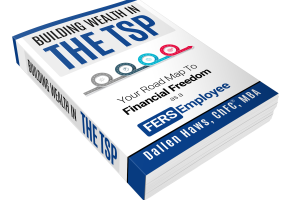Taxes and Social Security tend to be emotional topics just by themselves and putting them together is just asking for trouble.
So buckle up. Let’s dive in.
What!?! They Take Back Social Security!
Surprise! If you didn’t know already the majority of your Social Security payments will be taxed (if you are an average federal employee).
But don’t despair. There are some things you can do about it.
Let’s Talk States
There are two different types of taxes you could owe on your Social Security.
State Income Tax
Federal Income Tax
The best way to avoid State Income Tax is to move to a state that doesn’t tax Social Security or that doesn’t have an income tax at all (i.e. Florida, Texas, etc.)
And I have good news. Currently there are only 11 states that tax Social Security.
Here they are:
Colorado
Connecticut
Kansas
Minnesota
Missouri
Montana
Nebraska
New Mexico
Rhode Island
Utah
Vermont
But even for these 11 states that do tax Social Security in some way, many of these don’t tax benefits until you have income over certain thresholds. You can find the specifics here.
Note: States need to generate tax revenue in some way so if a state doesn’t have an income tax then they may levy higher levels of other types of taxes to make up for it (i.e. property taxes, sales taxes, etc).
You Can’t Escape Uncle Sam
Despite where you might move in retirement you won’t be able to escape federal taxes on your Social Security.
But just like many states, the federal government only taxes Social Security benefits once your income goes over certain levels.
What is Combined Income?
They have a special type of income they look at called combined income.
And here is the formula they use to determine your combined income:
AGI (Adjusted Gross Income) + Nontaxable Interest (i.e. municipal bonds, etc.) + 50% of Social Security = Combined Income
As an example, if your AGI is $60,000 (you can find your AGI for previous years on your tax returns) and you earned $5,000 from Municipal bonds and your Social Security benefits was $30,000 then this would be your combined income formula:
$60,000 + $5,000 + $15,000 (50% of Social Security) = $80,000 Combined Income
How Much Can I Make Before Getting Taxed?
Now that you have an idea of what income the government is looking for, here are the thresholds that determine how much of your Social Security will be taxable.
Individual
-Up to $25,000: 0%
-$25,000-$34,000: Up to 50%
-$34,000 and up: Up to 85%
Joint Return
-Up to $32,000: 0%
-$32,000-$44,000: Up to 50%
-$44,000 and up: Up to 85%
For example, if you filed an individual return and had a combined income of $30,000 then up to 50% of your Social Security benefit would be taxable.
And as you can see, with the current rules, the highest percentage of your benefits that will be taxed is 85%.
Note: Being taxed on 85% of your benefits does not mean that the government takes 85%. It only means that that percentage of your benefits will be added into your taxable income and the percentage of your taxable income that you’ll owe in taxes will be determined by your tax bracket.
How to Reduce your Taxes on Social Security
If you have combined income of less than $25,000 as an individual or less than $32,000 married then your work is done as you won’t pay any taxes on your Social Security already.
But as a federal employee, between your pension, TSP, and Social Security, you will probably have much more income than that so here are 4 ways to reduce your taxes on Social Security.
Delay It
Simply put, if you aren’t drawing Social Security then you won’t be taxed on it. And for many federal employees it makes sense to delay benefits for many reasons.
If you are not sure when you should take Social Security benefits as a federal employee, this article will help.
Reduce Bad Income
We all want lots of income in retirement but my favorite retirement income is the tax-free kind.
This type of income isn’t taxed and doesn’t affect your combined income to increase how your Social Security is taxed either.
This type of income comes from accounts like Roth TSP, Roth IRA, or HSA.
To learn about getting more Roth money in retirement check out this article.
Sell the Losers
If you have a brokerage account (non-retirement account) you know that you only pay taxes when you sell things.
For example, if you sell Amazon stock for $100 and bought it for $80 then you pay taxes on the $20 of profit.
But what if the stock had a bad year and you sell it for what you paid for it or less than what you paid for it?
For example if you paid $80 a year ago and it is still only worth $80 today.
Then if you sell it at $80 then you don’t pay any taxes because you didn’t have a gain.
Many people sell their losing stocks as a way to generate income without paying taxes.
Depreciate Your Income Away
Another way to have income without owing taxes is by owning rental properties.
Rental properties can provide cash flow every month while also providing lots of tax deductions like depreciation.
Note: How much profit and/or tax deductions a rental property provides can vary significantly from property to property.


